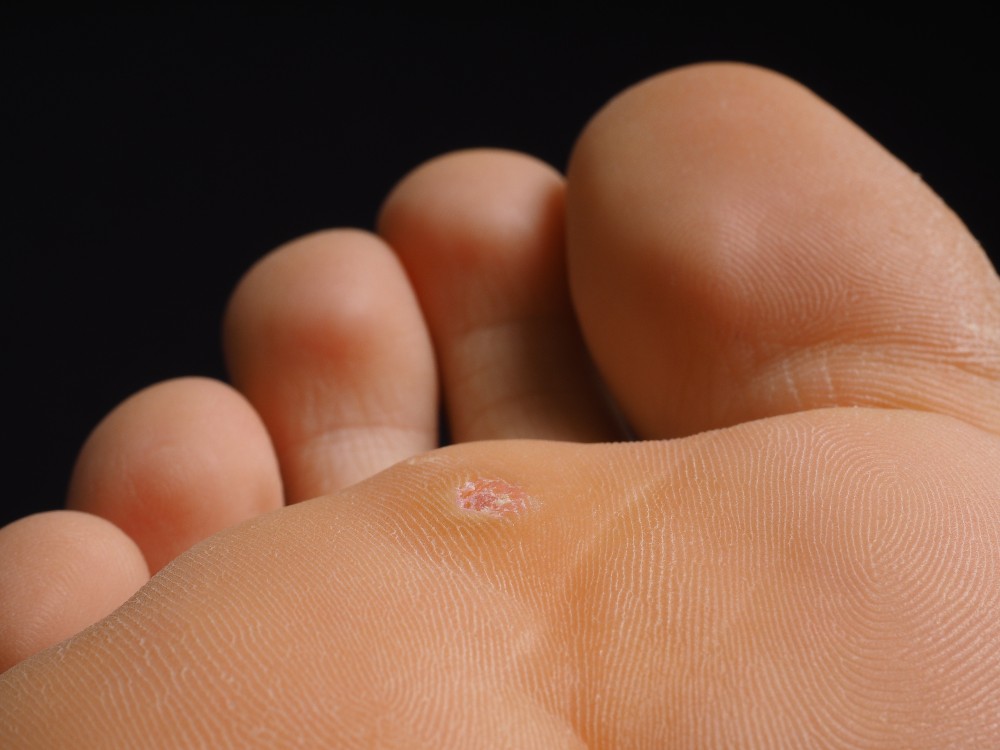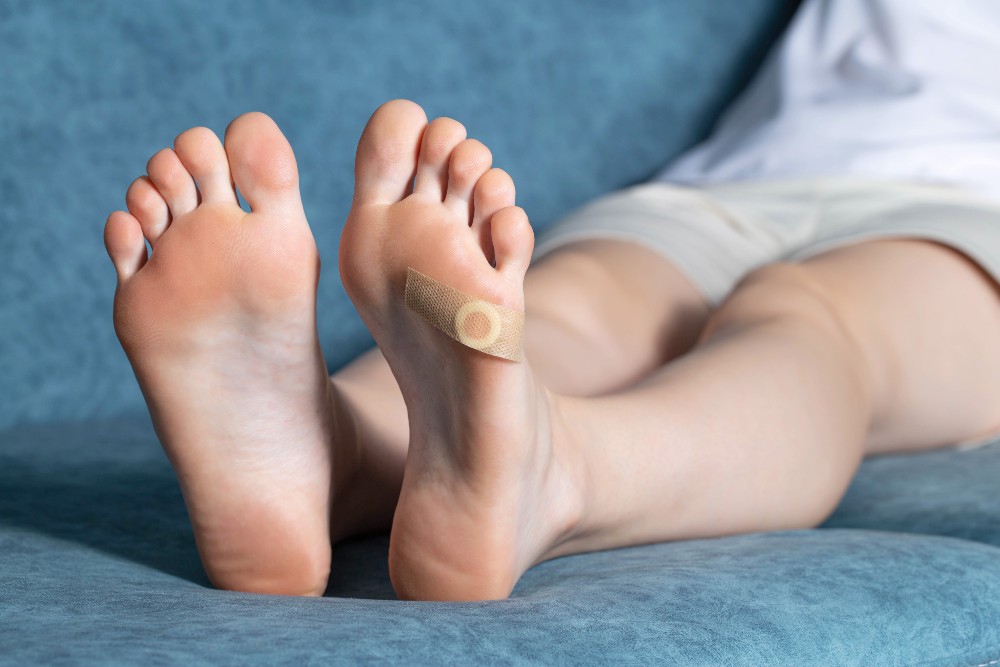Developing hard or uncomfortable warts on your feet can raise big questions: Where did they come from, and why did you get them?
Although each case is unique, plantar warts have a clear cause and many treatment options. Here are some tips from Dr. Yuko Miyazaki and the team on what this health condition might mean for you.

What are Plantar Warts?
Everyone knows viruses can compromise their health, and most people take steps to protect themselves. The problem is that infections can sidestep our defenses.
Plantar warts are a perfect example. This condition happens because of the human papillomavirus (HPV.)
Plantar warts typically take the form of rough, grainy patches of thickened skin. The majority are small, and they tend to occur on the parts of your soles that touch the ground most, like the balls and heels of your feet.
In some cases, plantar warts can start growing inward. This happens because the pressure of your weight forces them to expand upward, and these warts typically also come with hard calluses.
Some patients notice tiny black spots around their warts. Although these are commonly referred to as wart seeds, they’re just small blood vessels that have become clotted.
Each plantar wart infection is different: A lot depends on the patient and their lifestyle. Some other telltale signs may include if you:
- Experience pain or soreness when you walk or stand.
- Have darker skin and discover growths that appear lighter than their surroundings.
- Notice growths that don’t seem to follow the natural lines and ridge patterns on your soles.
- Discover clusters of growths on your soles, which is also known as having “mosaic” warts.
How HPV Happens
HPV is a common virus that comes in dozens of varieties. HPV infections can lead to many outcomes, including plantar warts.
The HPV infections that cause plantar warts occur on the feet. You might be susceptible if you’ve got cuts or openings on your soles. These gaps in your defense may be small, but they can let the virus enter with ease.
Some people are at higher risk of contracting warts – like children, diabetes sufferers, those taking immunosuppressive medications, or individuals with medical histories of warts. There are also known behavioral risk factors, such as:
- Coming into direct contact with a wart.
- Sharing footwear, towels, or foot care tools.
- Wearing damp socks or shoes for extended periods.
- Walking barefoot in public places.
Although warts often seem like minor problems, they can have serious adverse impacts on your quality of life. For instance, if they become painful, you might develop posture issues that eventually make it impossible to participate in activities you enjoy. If you think you might have warts and aren’t sure, the best thing to do is call our office immediately.

Treatment Options for Plantar Warts
There are numerous ways to treat plantar warts, and our podiatrist can help you choose an option that’s right for you:
- Clinical cryotherapy involves using liquid nitrogen to remove your warts by freezing the tissue. Although some over-the-counter medications claim to do the same thing, these don’t work for everyone.
- Peeling medications work by boosting your immune system’s virus-fighting power and removing growths layer by layer. Like cryotherapy, this method may take a few weeks to produce the desired effect.
- Blistering medications force your skin to grow blisters beneath warts, some of which then detach naturally or require a follow-up for removal.
- For the most severe cases, surgery can be utilized to remove warts.
Prevention Methods for Plantar Warts
Here are some tips on ways to prevent plantar warts:
- Don’t make direct contact with warts – even if they’re your own! If you touch a wart, wash your hands thoroughly.
- Never share footwear or anything that has or could have touched other people’s feet.
- Keep your feet and socks clean and dry. If your socks get wet, change into a new pair that is clean and dry.
- Get your HPV vaccine to prevent infection.
- Never walk barefoot in public places, like the pool or locker rooms at the gym. Shower sandals are always a good idea because you do not know whose feet were in there before you!
Talk to Us
If you’ve got plantar warts, then you know how annoying they can be – and how tough it can be to eliminate them for good. Stop struggling with this inconvenient foot condition, and get rid of those annoying warts permanently. Book an appointment by calling our office or through our online contact form today!